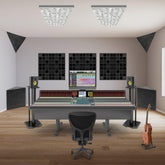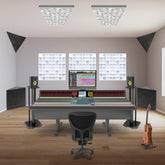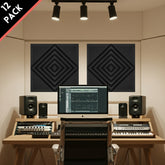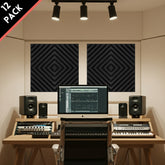Introduction to Genre-Specific Mixing: Adapting Your Approach
Introduction to Genre-Specific Mixing: Adapting Your Approach

Mixing is a critical stage in music production, where all the individual elements of a song come together to create a cohesive and polished sound. However, the mixing process isn’t one-size-fits-all. Each music genre comes with its own unique expectations, styles, and sonic characteristics. Understanding and adapting to these differences is the key to creating professional mixes that resonate with audiences.
Why Genre-Specific Mixing Matters
Every genre has its own identity, defined by its instrumentation, arrangement, and overall sound. For instance, a pop mix might emphasize vocal clarity and polished production, while a rock mix focuses on power and energy. Listeners have certain expectations for how a genre should sound, and meeting those expectations is crucial for creating mixes that connect with your audience.
Here’s why adopting genre-specific mixing strategies is so important:
- Maintaining Authenticity: A mix that aligns with the conventions of its genre feels more authentic and professional.
- Highlighting Key Elements: Each genre has specific elements that need to shine. For example, the beat in hip-hop or the guitar in rock.
- Improving Listener Engagement: Mixing to genre standards helps your music stand out and keeps listeners engaged.
Key Elements to Consider in Genre-Specific Mixing
When mixing for a specific genre, it’s essential to consider the following elements:
- Frequency Balance: Different genres emphasize certain frequency ranges. For instance, electronic dance music (EDM) often features a boosted low-end for impactful bass, while classical music prioritizes mid-range clarity for string and wind instruments.
- Dynamics: Genres like rock and metal thrive on dynamic energy, while pop music often employs compression for a polished, consistent sound.
- Stereo Imaging: Wide stereo imaging is a hallmark of EDM and pop, whereas jazz and blues benefit from a more natural, centered stereo field.
- Effects Usage: The use of reverb, delay, and other effects varies widely by genre. For example, hip-hop might use creative delays on vocals, while classical music often avoids heavy effects to maintain a natural sound.

Steps to Adapt Your Mixing Approach
To tailor your mix to a specific genre, follow these steps:
- Understand the Genre: Listen to high-quality reference tracks in the genre you’re mixing. Analyze the tonal balance, dynamics, and effects used to get a sense of what works.
- Focus on Key Elements: Identify the most important elements of the genre and prioritize them in your mix. For example, ensure the beat in a hip-hop track or the vocal in a pop song stands out.
- Adjust Processing Techniques: Use EQ, compression, and effects to enhance the unique characteristics of the genre. Tailor your approach to match the style and mood of the song.
- Experiment Creatively: While it’s important to respect genre conventions, don’t be afraid to experiment and add your unique touch. This can help your mixes stand out.
Common Challenges in Genre-Specific Mixing
Mixing for different genres comes with its own set of challenges. Here are a few common ones and how to overcome them:
- Over-Mixing: Trying to make every element perfect can lead to a cluttered mix. Focus on the most important aspects of the genre.
- Overusing Effects: Effects can enhance a mix, but overdoing them can detract from the genre’s authenticity. Use them judiciously.
- Lack of Genre Knowledge: Mixing a genre you’re not familiar with can be daunting. Spend time researching and listening to understand its nuances.
Conclusion
Adapting your mixing approach to the specific needs of a genre is an essential skill for any sound engineer or producer. By understanding the unique characteristics and expectations of each genre, you can create mixes that sound authentic, polished, and engaging. In the next post, we’ll dive into mixing strategies for pop music, focusing on clarity and impact to achieve radio-ready results.
ABOUT AUTHOR
House Live Engineer of Free Bird, a live house with the history of South Korea's indie music scene.
Single album/Regular album/Live recording, Mixing and Mastering experience of various rock and jazz musicians
















